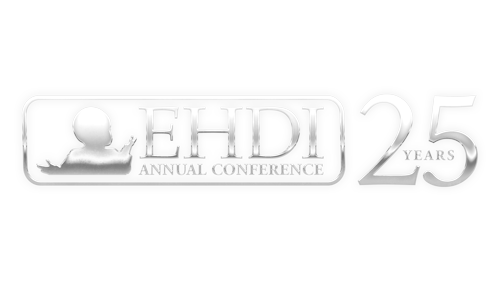2026 Early Hearing Detection & Intervention Conference
March 15-17, 2026 • Jacksonville, FL
3/10/2025 | 11:25 AM - 11:55 AM | After the 6: What can we do to support systems change in Early Intervention? | 315/316
After the 6: What can we do to support systems change in Early Intervention?
Early Hearing Detection and Intervention (EHDI) systems have made great strides in identifying children with hearing differences in the last 20 years, following the 1-3-6 guidelines and tracking the time the child is diagnosed, fit and enrolled in early intervention (EI). However, the “6” (enrolled in EI) has been a relative stopping point in tracking outcomes when, in actuality, this is a critical starting point in ensuring that children are meeting their full potential. In the last few years, there has been greater emphasis in tracking language outcomes but there are inherent challenges (i.e., agreement on test battery, quantitative measures, assessments across languages and abilities) with collecting and tracking these over time. This gap widens further in translating language outcomes to progress monitoring and in training future and current providers how to use these outcomes practically in intervention. In 2024, a letter was issued outlining the future of Early Detection Haring and Intervention (EHDI) programs, a potential for a path of improving outcomes by linking data collection, systems improvement, and provider training. This presentation will outline a proposal for key aspects that need to be considered for the fruition of tracking and improving outcomes through family-centered practice, assessment data collection and tracking, and integration of these to ensure highly qualified providers in our EHDI systems.
- Participants will be able to identify metrics to assess communication outcomes
- Participants will be able to list ways assessment outcomes can be integrated into training
- Participans will be able to describe how family-centered early intervention can play a role in systems change
Presentation:
This presentation has not yet been uploaded.
Handouts:
Handout is not Available
Transcripts:
CART transcripts are NOT YET available, but will be posted shortly after the conference
Presenters/Authors
Kristina Blaiser
(Primary Presenter,Author), Idaho State University, Kristina.Blaiser@isu.edu;
Kristina Blaiser, Ph.D., CCC-SLP, is
a Professor of Speech-Language Pathology in the Department of Communication Sciences and Disorders and directs the HATCH (Helping Adults Talk to Children) Lab at Idaho State University. Dr. Blaiser has extensive experience leading early childhood education programs and evaluating the outcomes of children who are Deaf and Hard-of-Hearing. Her research interests include program evaluation and graduate training related to assessment and early intervention practices of children who are Deaf/Hard-of-Hearing. Dr. Blaiser’s recent work has focused on using telehealth to support families in early intervention. Kristina is the Coordinator for ASHA SIG 9: Hearing Loss and Hearing Disorders in Childhood.
ASHA DISCLOSURE:
Financial -
• Receives Grants for Other activities from OSEP.
Nonfinancial -
• Has a Professional
(Board)
relationship for Board membership.
AAA DISCLOSURE:
Financial -
Financial relationship with Office of Special Education Programs funding.
Nature: Coordinator of SIG 9, Special Projects Chair on CECDCD, Advisory Member of AAP-PEC, Advisory Member of FL3.
Nonfinancial -
No relevant nonfinancial relationship exists.
